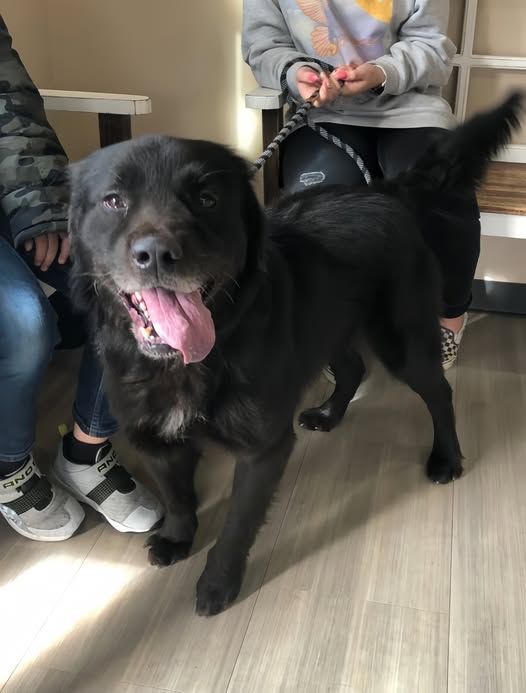Too Loud to Love? The Story of Max, the Dog Who Just Wanted to Be Heard

Too Loud to Love? The Story of Max, the Dog Who Just Wanted to Be Heard
In a world where pets are often praised for being “quiet,” “easy,” or “low-maintenance,” one dog was nearly forgotten for the very thing that made him unique: his voice.
Max, a young Labrador mix with warm eyes and an even warmer heart, was surrendered to a local shelter with no warning, no second chance, and no goodbye. His previous family, citing “too much barking,” dropped him off with little explanation. For them, his voice was an inconvenience. For Max, it was the end of the only life he’d ever known.
At the shelter, Max didn’t understand what had happened. One day he had a home, a bed, people. The next, he was behind metal bars, watching strangers pass by. He barked constantly—not from aggression, but from confusion, loneliness, and a desperate desire to be noticed. Each bark carried a question:
“Why am I here?”
“Where did my family go?”
“Will someone come for me?”
Shelter volunteers tried their best. They gave Max treats, walked him daily, and comforted him when the kennel grew cold and the nights felt long. Still, the barking didn’t stop. Many visitors passed his kennel, drawn at first by his beautiful golden coat, then quickly walking away when the barking began. To them, he was a “problem dog.”
But Max wasn’t a problem. He was grieving.
When we met Max, we almost didn’t stop at his kennel. He was barking like always—loud, persistent, his tail wagging furiously. His whole body seemed to speak: “Please see me. Please give me a chance.”
And so we did.
The day we brought Max home, he was unsure of everything. He paced. He barked at passing cars, at doors creaking open, even at the microwave. It was as if he believed the only way to exist was to be loud, because being quiet had never made anyone stay.
We didn’t silence him. We listened.
With time, patience, and countless belly rubs, Max began to understand that he didn’t need to bark to be acknowledged. A touch on the head, a glance, a soft voice saying “good boy” was enough. Slowly, he began to trust again.
That’s not to say the barking stopped entirely. Max still “talks”—when he’s happy, when he wants attention, when it’s dinner time. But now, each bark feels different. It’s no longer a cry for help. It’s a celebration of belonging.
Max’s voice is part of who he is. It’s his personality, his spirit, his joy. To ask him to be silent would be like asking a songbird not to sing.
Today, Max is the heart of our home. He’s still loud. He greets us every morning with a happy bark and a wagging tail. He tells us when the mail arrives, when it’s time to play, when he’s ready for a walk. He makes us laugh. He keeps us company. He reminds us that love sometimes speaks up—and it deserves to be heard.
Max was never too much. He just needed someone to understand that being noisy isn’t a flaw—it’s communication. And behind every bark was a heart waiting to be loved.
He didn’t need to be fixed. He needed to be accepted.
And now, he is. Loud, loyal, and loved beyond measure.











